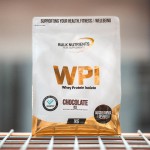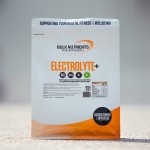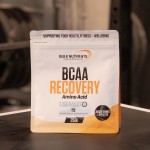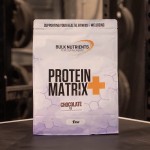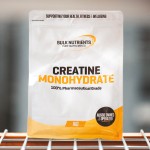Bulk’s Ultimate Guide to AFL Nutrition

Nutrition and Supplementation for AFL Players
G'day AFL enthusiasts!
Whether you're an up-and-coming footy player or a seasoned athlete looking to amp up your game… nutrition plays a crucial role in your on-field performance, just ask the North Melbourne Football Club.
Proper nutrition supports not only your physical health but can also boost energy levels, optimises recovery, and enhances overall performance.
In this ultimate AFL guide, we're going to dive deep into the world of nutrition, explore dietary basics, the benefits of a well-balanced diet, and the game-changing impact of targeted supplementation.
So, lace up your boots and let's embark on this nutritional journey to help you kick more goals on and off the field.

Understanding AFL and Its Physical Demands
Australian Rules Football, or AFL as it's commonly known, is a sport that has seen a significant evolution in its training methodologies over the years.
The Evolution of AFL Training
What used to be a game largely focused on skill training has shifted towards a holistic approach, where strength, speed, endurance, and agility are all equally integral parts of an AFL player's toolkit.
This evolution underscores the sport's increased focus on overall fitness and athleticism, pushing players to continually improve their physical abilities to meet the game's dynamic demands.
As such, it's paramount that the nutritional strategies of AFL players evolve in tandem, providing them with the fuel they need to meet these rigorous training standards.
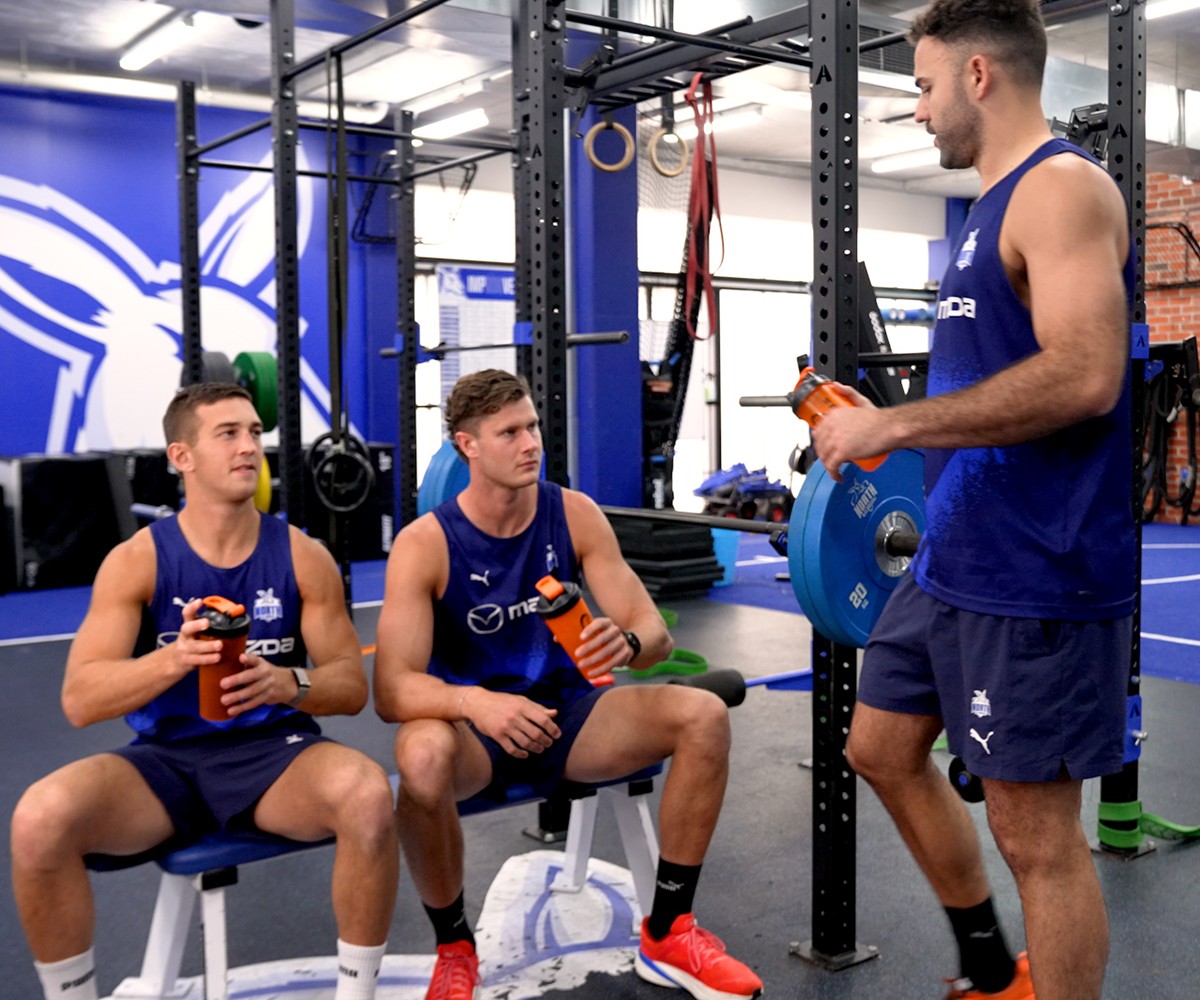
The Physical Traits Required in AFL
AFL is a sport that requires a unique blend of physical traits.
Whether it's the explosive power needed for high-intensity actions like jumping and tackling or the endurance to maintain performance throughout an entire match, modern AFL players need to be in top physical condition.
In addition, speed and agility are crucial for quick direction changes and fast-paced play. Different positions on the field have varying energy demands, further necessitating a tailored approach to each player's diet and nutrition.
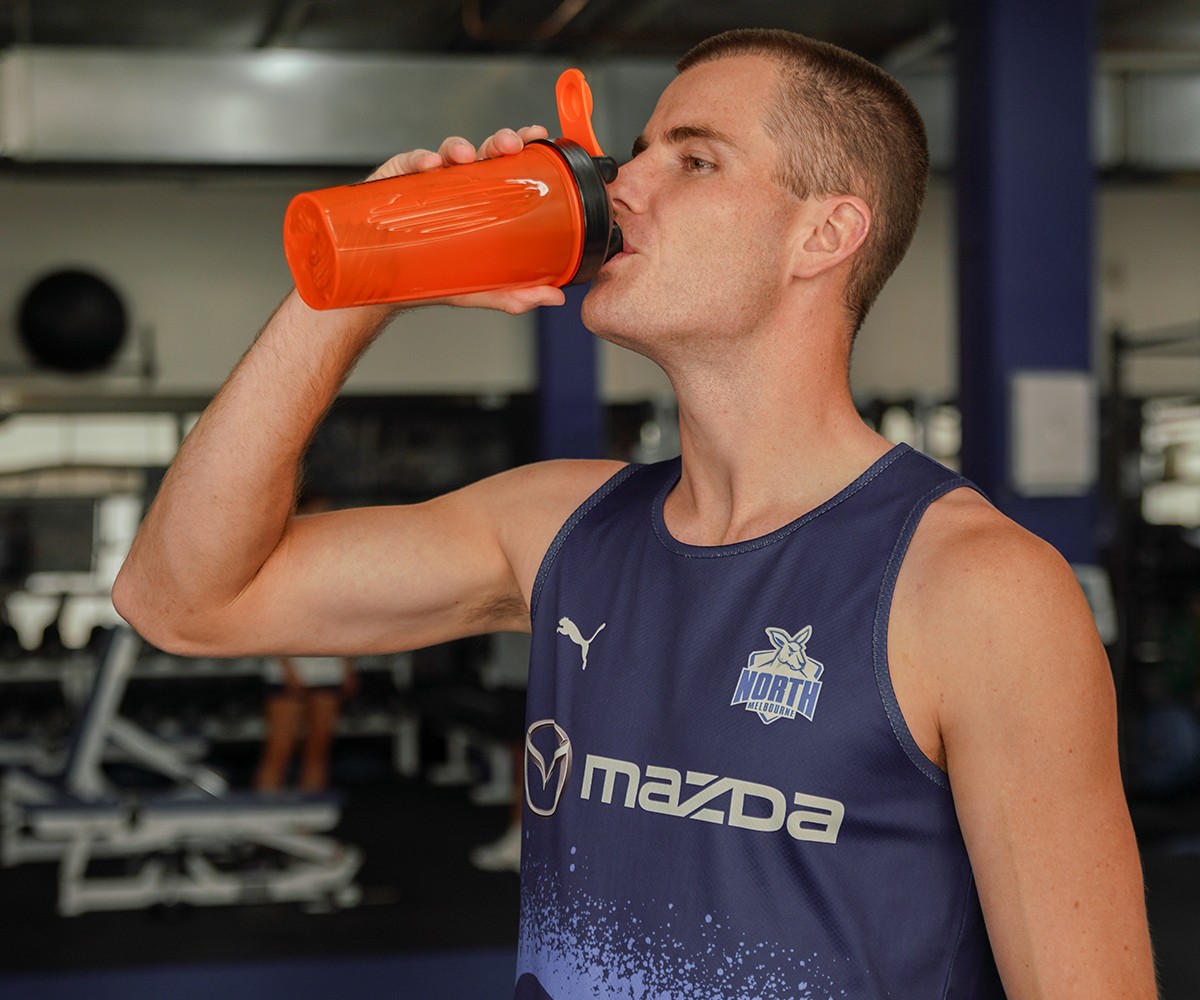
The Distance: How Far Does an AFL Player Run in a Game?
For those who've ever pondered how far an AFL player runs in a game?… the answer might surprise you.
On average, a player can clock anywhere from 12 to 20 kilometres per match, depending on their position.
Midfielders, for instance, often cover the higher end of this range due to their role's nature, requiring constant roaming up and down the field.
Higher AFL Performance through Nutrition
This level of intense physical exertion places a hefty demand on an athlete's body, underscoring the critical importance of a carefully curated AFL diet and strategic nutrition plan.
It's not just about eating to satisfy hunger; it's about fuelling performance, promoting recovery, and supporting overall well-being.
AFL Player Diet: The Basics
Before we dive into the nitty-gritty of supplements, let's tackle the foundation of any effective athletic nutrition strategy: the diet.
The Power of an Effective Diet
The diet of an AFL player isn't just about keeping the hunger pangs at bay; it's about providing the body with the essential nutrients it needs to train, perform, and recover optimally.
Macronutrients: The Building Blocks of an AFL Diet
Macronutrients, including proteins, carbohydrates, and fats, form the backbone of an AFL player's diet.
Proteins are crucial for muscle repair and growth, carbs provide the energy needed for those long matches and intense workouts, and fats support essential bodily functions such as hormone production.
Micronutrients: The Unsung Heroes
While macronutrients may get all the limelight, let's not forget the significant role that micronutrients (vitamins and minerals) play.
They may be required in smaller quantities, but they're just as essential for optimal body function and athletic performance.
Nutrition for AFL Training
While AFL games themselves are highly demanding, let's not forget the countless hours of training that players put in off the field.
Fuelling the Training
Proper nutrition can make a significant difference in the effectiveness of these workouts, providing the energy required and aiding recovery post-workout.
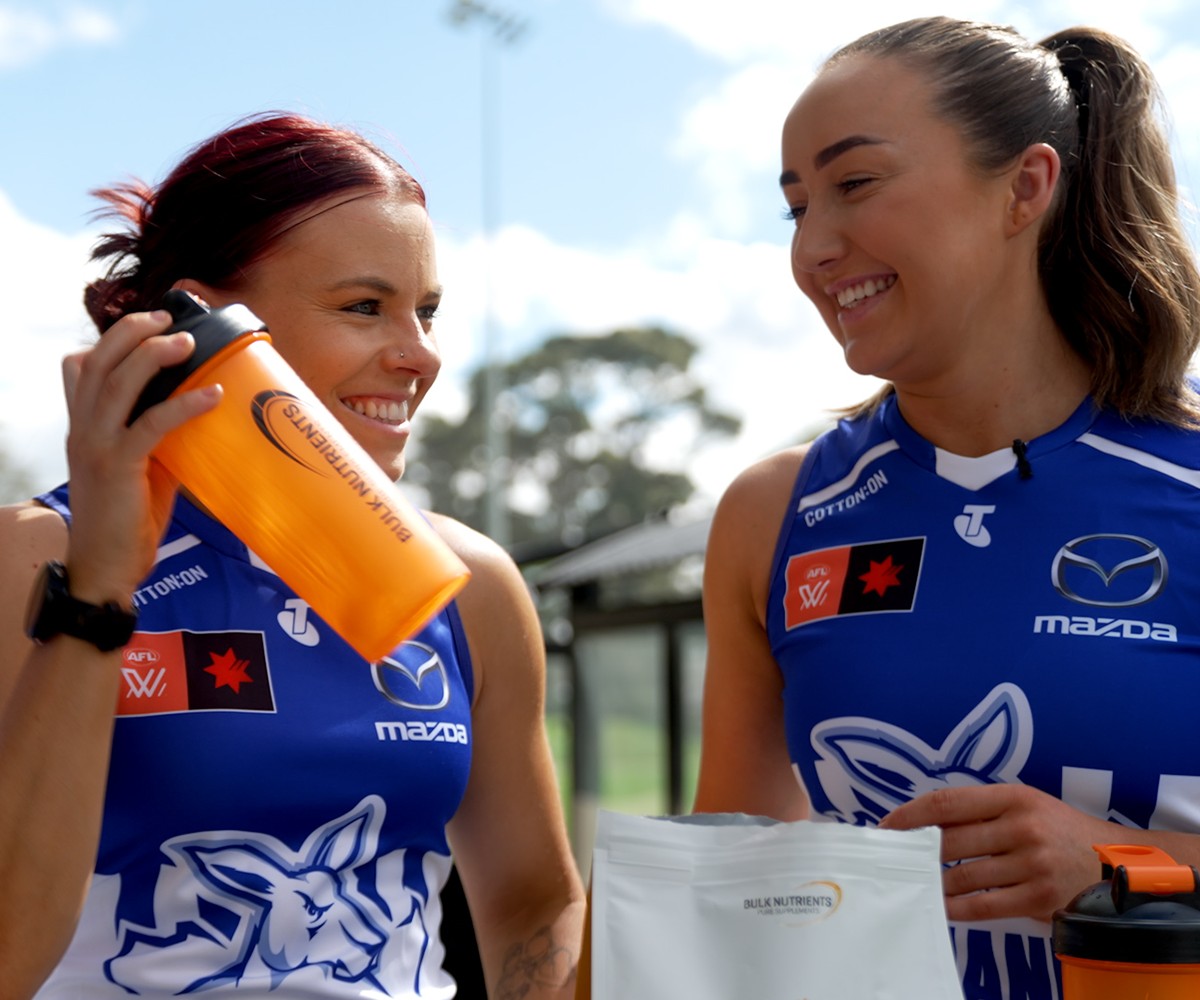
Pre-Game Nutrition: Fuelling for Performance
It goes without saying, but pre-game nutrition begins long before the match.
Timing is Everything
Ideally, your main pre-game meal should be consumed around 3-4 hours before kick-off to allow enough time for digestion and absorption of nutrients.
This meal should be high in carbohydrates to maximise energy stores, moderate in protein, and low in fat and fibre to minimise any digestive discomfort.
What Does an AFL Pre-Game Meal Look Like?
So, what does a typical AFL pre-game meal look like? Here are some examples:
- A bowl of whole-grain pasta with lean chicken and a low-fat sauce.
- A large jacket potato with a moderate serving of tuna and a side of vegetables.
- Brown rice with lean meat and veggies.
Remember, it's essential to stick with foods that you know and tolerate well before a game. Game day is not the time to experiment with new foods!
Stay Hydrated
Keeping yourself well-hydrated is as crucial as fuelling your body with the right food.
Make sure you're drinking plenty of fluids in the 24 hours leading up to the game and keep sipping on water until kick-off.
Top Up on Energy
For those who feel hungry closer to the game, a small snack 1-2 hours before kick-off can help top up energy levels. This could be a piece of fruit, a low-fibre cereal bar, or a slice of bread with honey.
In the next section, we'll talk about what to eat and drink during the game to maintain your performance.
Nutrition During the Game: Maintaining Energy and Hydration
While the pre-game meal loads your energy stores, during the AFL game it's all about maintaining these levels.
Quick Energy Snacks
While consuming a full meal isn't practical or comfortable during gameplay, small, carbohydrate-rich snacks can be beneficial.
Items like bananas, oranges, energy gels, or sports drinks can provide a quick energy boost during quarter and half-time breaks.
Staying Hydrated
One of the most crucial elements during a game is hydration.
Running, tackling, and the overall intensity of the match can lead to substantial fluid and electrolyte loss.
To prevent dehydration, which can significantly affect performance, make sure to drink fluids regularly throughout the game.
Sports drinks containing electrolytes and a small amount of carbohydrates can be beneficial, especially during longer matches or in hot weather conditions. They provide not only hydration but also a quick source of energy and replacement of lost electrolytes.
Listen to Your Body
Remember, each player's nutritional needs during the game can vary, depending on the weather, the intensity of the game, and the player's individual needs and preferences.
You might need more fluids or carbohydrates than others, so listening to your body and understanding its needs during the game is crucial.
In the next section, we'll shift our focus to post-game recovery and how nutrition can support the body in bouncing back after a gruelling match.
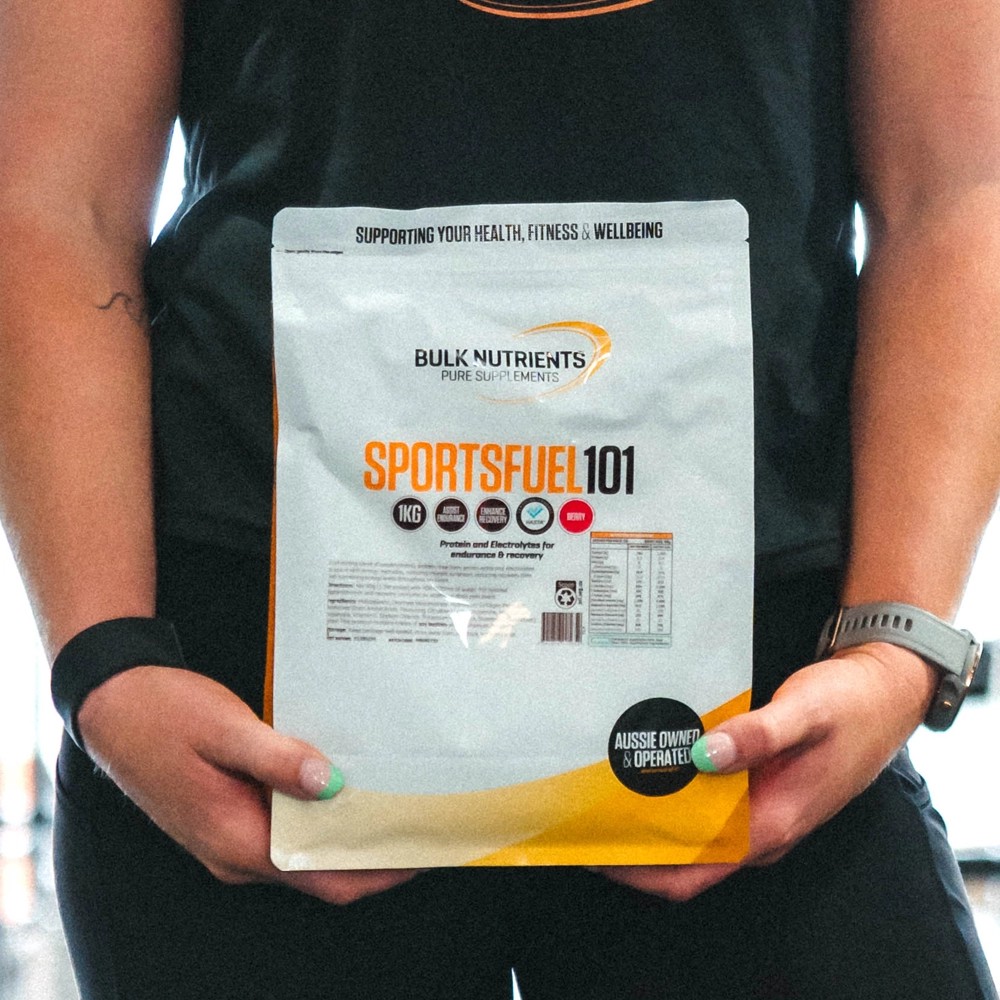
Post-Game Recovery Nutrition: Refuel, Rehydrate, Repair
The Importance of Recovery Nutrition
As the final siren blows, your body is in a state of depletion, with energy stores drained and muscle tissue damaged from the physical exertion.
Your post-game nutrition, therefore, has three main goals: refuel your energy stores, rehydrate your body, and repair any muscle damage.
The Recovery Window
The first 30-60 minutes post-game is often referred to as the 'golden window' for recovery nutrition.
During this period, your body is most efficient at storing carbohydrates and absorbing protein.
Therefore, it's beneficial to consume a meal or snack containing both these nutrients as soon as possible after the game.
What to Eat for Recovery
Your post-game meal should include high-quality protein to aid muscle repair and plenty of carbohydrates to replenish energy stores. Here are some examples:
- A protein shake with a banana or other fruit.
- A sandwich with lean protein filling like turkey or chicken.
- Greek yoghurt with fruit and a drizzle of honey.
Remember to include a variety of colourful fruits and vegetables in your post-game meal. They're packed full of antioxidants which can help fight inflammation caused by intense physical activity.
Post AFL Game Rehydration
Lastly, don't forget to replace the fluids lost during the game. Drink plenty of water, and if the game was particularly long or played in hot conditions, consider a sports drink to replace lost electrolytes.
By prioritising recovery nutrition, you can speed up your body's healing process, reduce muscle soreness, and set yourself up for success in your next training session or match.
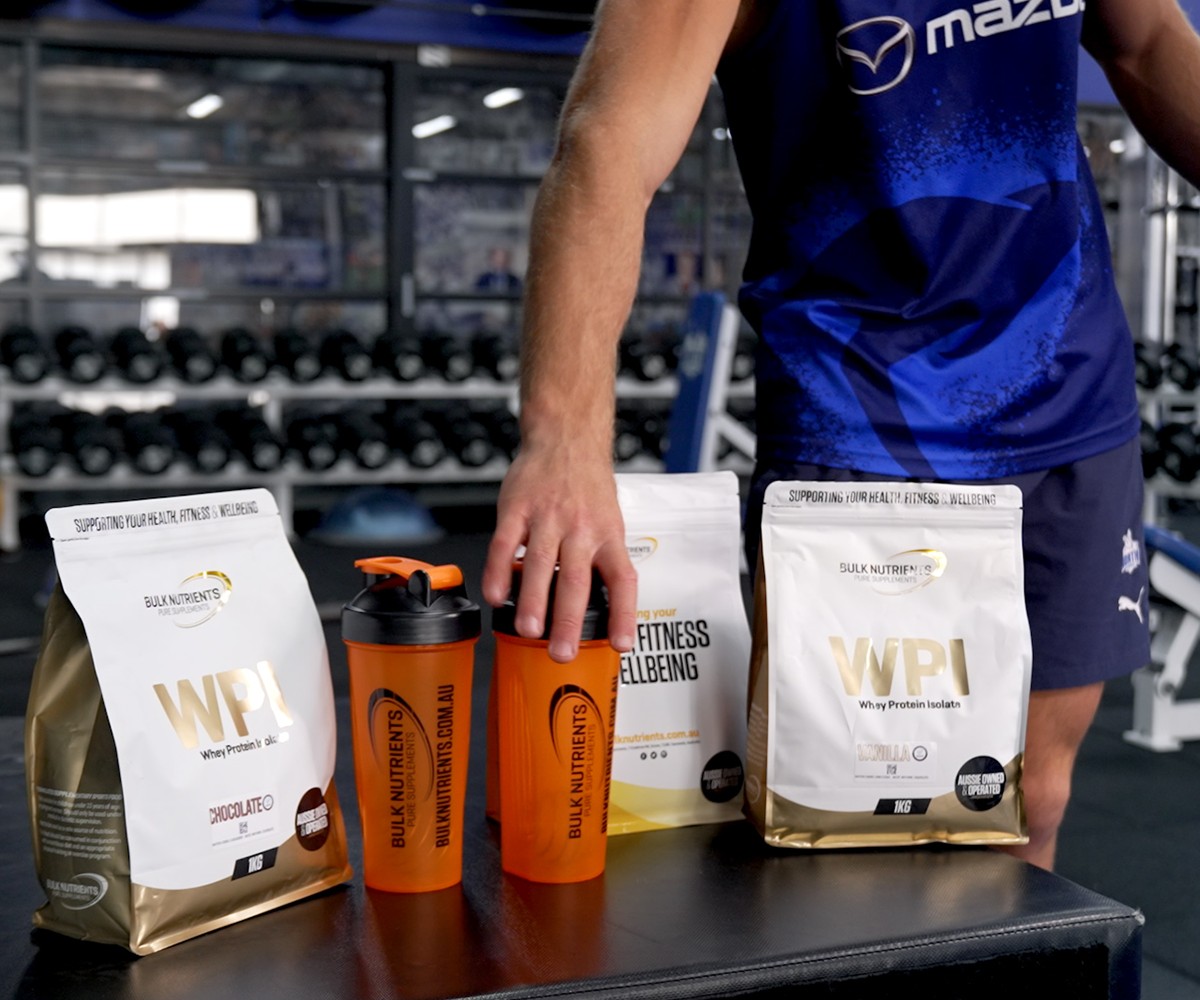
Stay tuned for the next section, where we'll dive into the fascinating world of supplements and their role in AFL nutrition.
Supplementation in AFL: A Detailed Look
While a balanced diet should always be the cornerstone of an athlete's nutrition plan, sometimes, it might not be enough to meet the demanding nutritional needs of an AFL player. That's where supplements come in.
Why Consider AFL Supplements?
When used strategically, supplements can help to optimise performance, aid recovery, and support overall health.
Remember, though, that supplements are not a substitute for a healthy diet. Instead, they should be viewed as a tool to supplement and support an already sound nutrition plan.
Let’s look at popular supplements for AFL athletes…
Proteins and Amino Acids
Protein supplements are one of the most used supplements in AFL. They're beneficial for promoting muscle repair and growth, particularly when consumed post-workout or game. Whey protein is a popular choice due to its high biological value and quick absorption rate.
Branched-chain amino acids (BCAAs), a group of three essential amino acids, have been shown to promote muscle protein synthesis and reduce muscle soreness, making them a worthwhile consideration for AFL players.
Carbohydrate Supplements
Carbohydrate supplements, such as sports drinks and energy gels, can provide a quick source of energy during games and help replenish glycogen stores post-game.
These can be particularly useful during prolonged periods of high-intensity exercise when eating a meal or snack might not be practical.
Creatine
Creatine, a substance naturally produced by the body and found in foods like meat and fish, is another commonly used supplement.
It can help to enhance performance in high-intensity, short-duration activities, such as sprinting and jumping, making it a useful supplement for AFL players.
Vitamins and Minerals
While a balanced diet should provide all the necessary vitamins and minerals, certain circumstances might warrant supplementation with products like Vitamin and Mineral Premix.
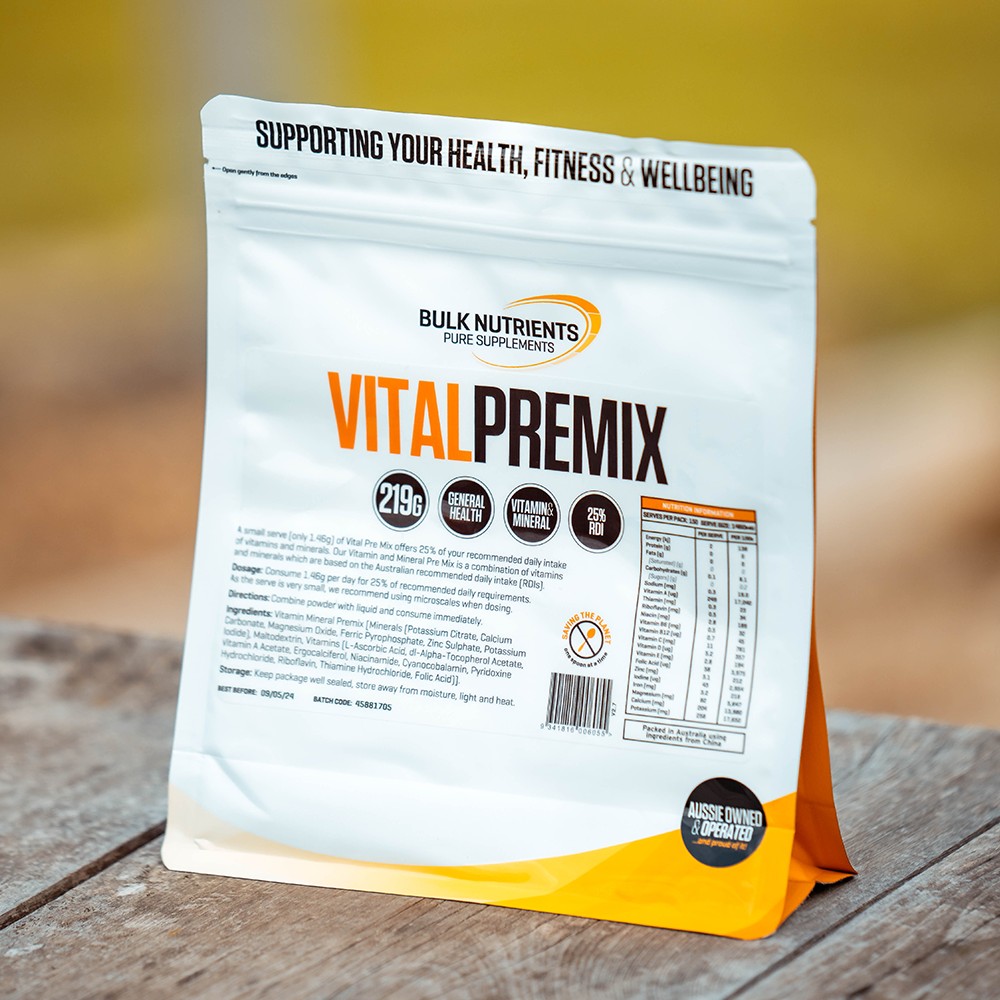
In the next section, we'll provide a practical guide on how to use these supplements throughout the training and game day cycle.
The Benefits of Eating Well: Beyond AFL
While the immediate performance benefits of good nutrition are vital, there are countless other reasons why maintaining a balanced diet is beneficial for AFL players.
Boosting Overall Health
Proper nutrition can support overall health, enhance immune function, and reduce the risk of chronic diseases like heart disease and diabetes.
It can also contribute to healthier skin, better mood and mental health, and improved sleep quality.
Long-Term AFL Performance
Consistently fueling your body with the right foods and fluids can enhance training adaptations, improve body composition, and reduce the risk of injuries and illnesses, all of which can contribute to a longer, healthier athletic career.
Healthy Relationship with Food
Eating well is also about having a positive relationship with food.
Understanding that food is more than just fuel – that it also plays a central role in our social lives and overall enjoyment – can lead to a more balanced and sustainable approach to eating.
By learning to enjoy a wide variety of foods and listening to your body's hunger and fullness cues, you can achieve optimal nutrition without sacrificing your relationship with food.
The Bigger Picture
Finally and most importantly… good nutrition habits can set you up for life beyond AFL.
The knowledge and skills you gain in the pursuit of athletic performance – like how to prepare balanced meals, the importance of regular eating, and how to hydrate properly – can and will benefit you long after you hang up your boots.
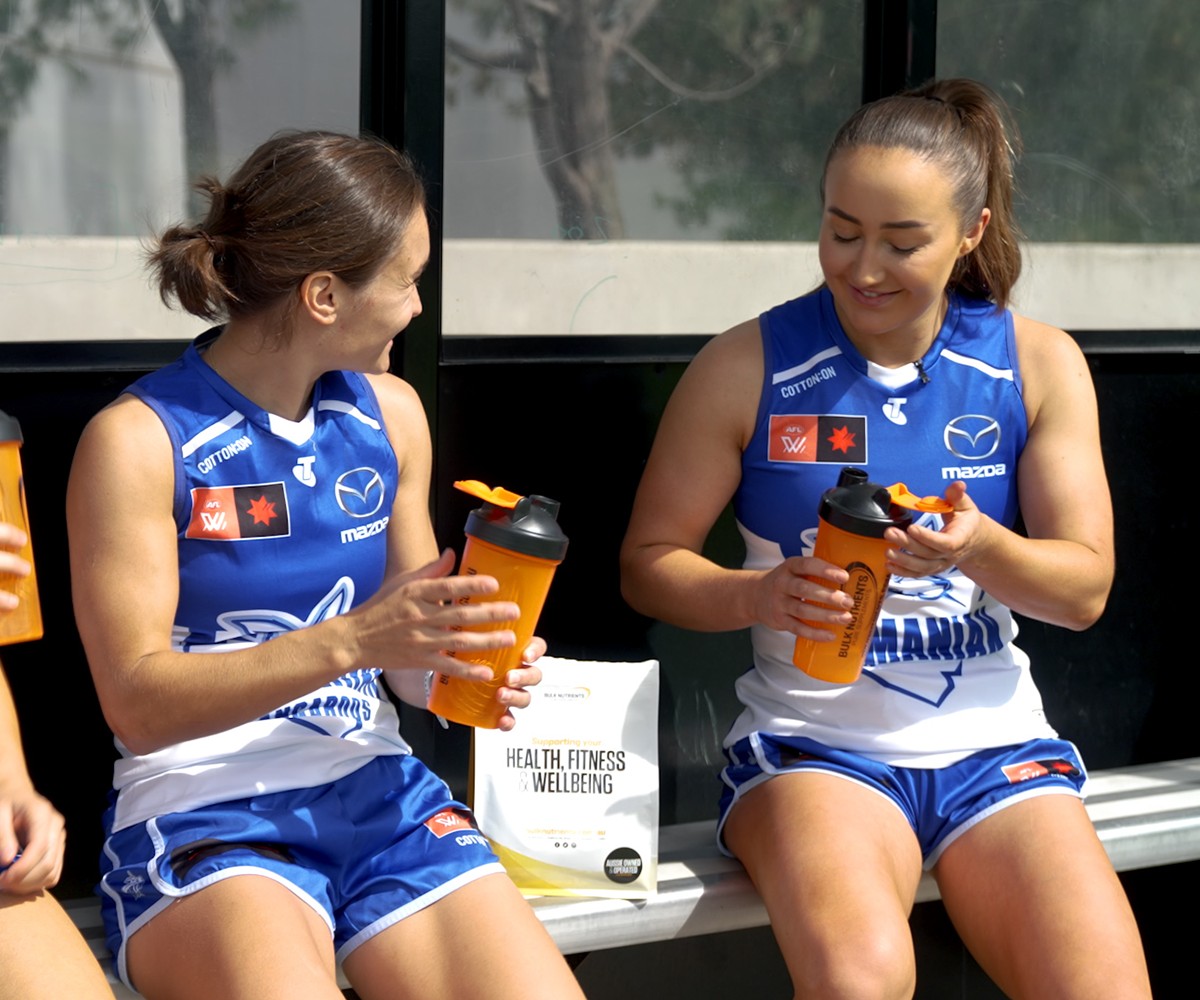
In the last section, we will summarise the key points from this guide and provide some final takeaways for your AFL nutrition journey.
Wrapping Up: Key Takeaways for AFL Nutrition
Understanding and implementing proper nutrition strategies can be a game-changer for any AFL player.
It's a multifaceted approach that goes beyond just knowing what to eat and when.
Here are the key takeaways from our guide:
Tailor Your Nutrition to the Demands of AFL
The unique physical demands of AFL – a combination of endurance, strength, and high-intensity intervals – require a tailored approach to nutrition.
Ensure you're consuming enough energy, particularly from carbohydrates, to fuel your performance and recovery.
Strategise Your Nutrition Around Training and Game Day
Pay attention to the timing of your meals and snacks around training sessions and matches.
Use the guidelines we mentioned earlier to fuel up before, stay energised and hydrated during, and recover effectively after games.
Consider Supplements Carefully
Supplements can provide a performance edge, but they should never replace a balanced diet.
Only consider supplements if they are safe, legal, and likely to help.
Eating Well Goes Beyond Performance
Remember, good nutrition isn't just about performance.
A balanced diet can support overall health, contribute to a positive relationship with food, and set you up for long-term success, both on and off the field.
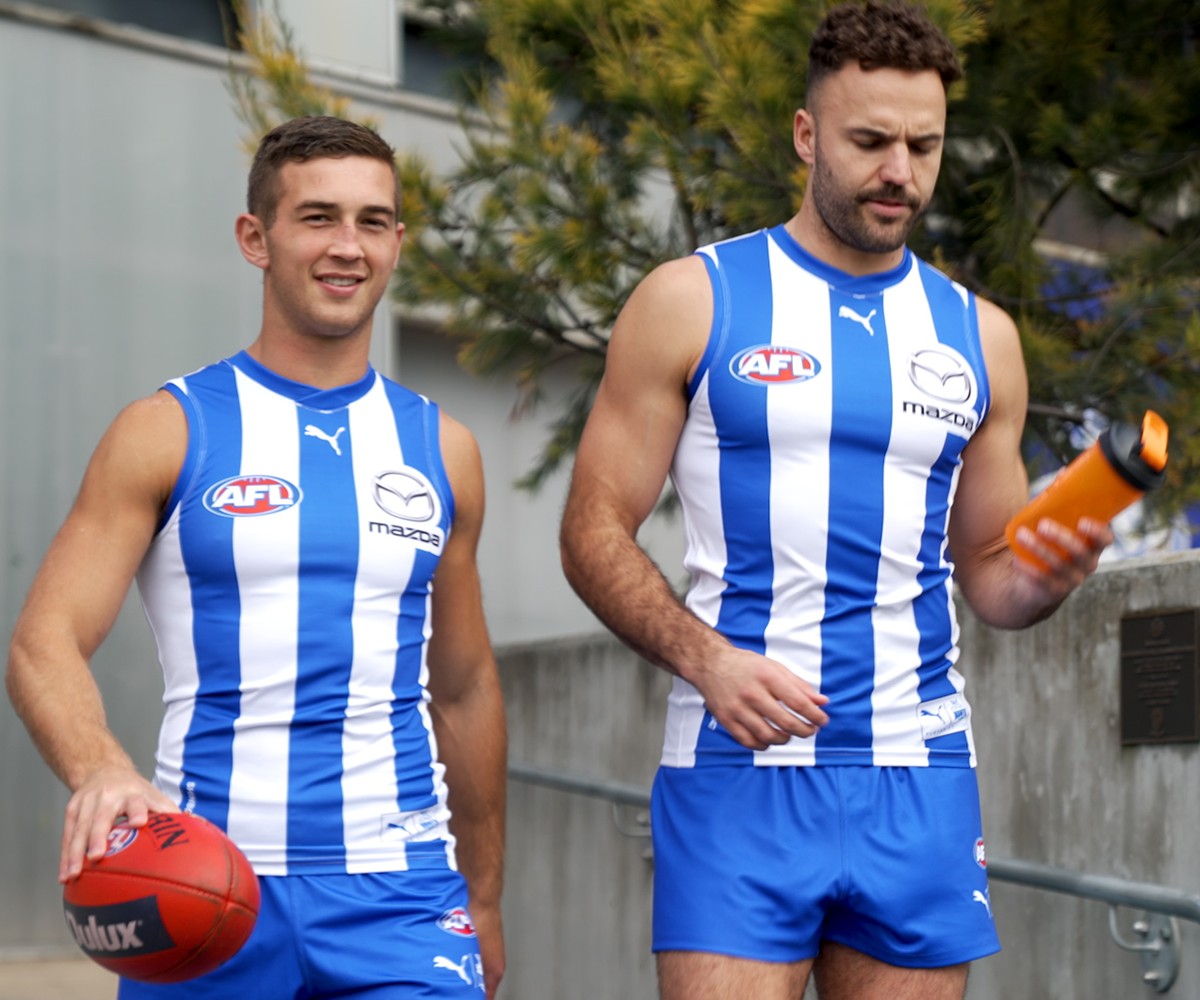
With these insights in hand, you're equipped to make the right nutrition choices to support your AFL journey.
May your dedication to nutrition match your passion for the game, and lead you to new levels of performance.

Nick is Bulk's Customer Service team's Technical Support Officer.
Which is our way of saying he's the guy whose job it is to answer your obscenely technical supplement questions.
More about Nick TelescaRelated Blogs

ZMA for Improved Health, Immunity and Sleep
Posted by Bulk Nutrients
Estimated reading time: 2 minutes

The Role of Nutrition in Immune Function
Posted by Jackson Peos
Estimated reading time: 11 minutes

Bulk Nutrients partners with North Melbourne in AFL & AFLW
Posted by Ebony Abblitt
Estimated reading time: 2 minutes
